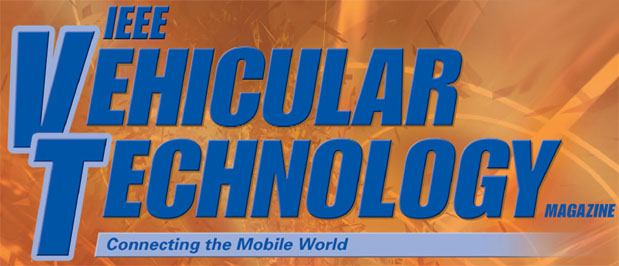Call For Papers:
Special Issue on Recent Advances in Automated Driving Technologies
Important Dates |
|
|---|---|
| Manuscript Submission by: | 11 March 2022 (extended) |
| First Round Reviews by: | 13 May 2022 |
| Second Round Submissions by: | 30 June 2022 |
| Second Round Reviews / Editorial Decisions: | 26 August 2022 |
| Final Articles by: | 6 September 2022 |
| Publication: December 2022 | |
We live in the era of the advent of automated vehicles. These machines will bring dramatic changes to both the automotive industry and everyday life, revolutionizing the concept of passenger mobility. Perception is crucial for an autonomous vehicle, and presents important challenges, many of which are still to be addressed. The choice of sensors is pivotal, yet there is still no general consensus on what the “best” sensory equipment should consist of. Perception-related information is then used to make timely decisions on path planning and vehicle dynamics control, to ensure efficient and safe vehicle behavior. In this context, the importance of the role of machine learning algorithms is increasing quickly, in the generation of trajectories perceivable as “natural” by the car occupants for example, or in object recognition.
This Special Issue encourages researchers working in this field to share their latest developments on sensing and perception, path planning and decision making, machine learning and control using data-driven learning or physics-driven algorithms, focusing on technologies directly applicable to autonomous vehicles. The topics of interest include, but are not limited to:
- Sensors, including vision-related equipment such as cameras, radars, lidars, ultrasounds and digital image processing challenges, as well as inertial measurements for vehicle dynamics
- Cooperative perception technologies, sensor fusion techniques and their specific peculiarities, vehicular network technologies for data transmission
- Motion planning frameworks and technologies, including indoor and outdoor navigation, decision making, trajectory following
- Artificial intelligence techniques, including machine learning, deep learning, neural networks, training and robustness issues, algorithmic stability, safety and standardisation, challenges related to public trust and acceptance
- Motion control algorithms, including advanced control for longitudinal, lateral and vertical vehicle dynamics communications
- Modeling and simulation methods to assess vehicle automated driving functions, including virtual and experimental/field testing techniques and implementations in embedded systems
- Diagnosis and fault estimation of safety-critical vehicular sub-systems, actuators and sensors of automated vehicles
- Connected vehicles, exploiting connectivity with other vehicles and infrastructure in the design of vehicular control and estimation functions
- Standardization opportunities in vehicle automated driving, including analysis of existing standards and discussion of future standardization needs, such as safety metrics of automated vehicles
- Application case-studies in passenger cars, off-road vehicles, heavy-duty vehicles, buses, bikes, etc.
Submitted papers should contain state-of-the-art research material presented in a tutorial or survey style. All manuscripts should contain state-of-the-art material presented in a tutorial or survey style, and must adhere to IEEE VTM guidelines.
Submit PDF version of complete manuscripts to http://mc.manuscriptcentral.com/vtm-ieee
Guest Editors
Basilio Lenzo
University of Padua, Italy
Ricardo de Castro
University of California Merced, USA
Yan Chen
Arizona State University, USA
Shaobing Xu
University of Michigan, USA
Xudong Zhang
Beijing Institute of Technology, China

